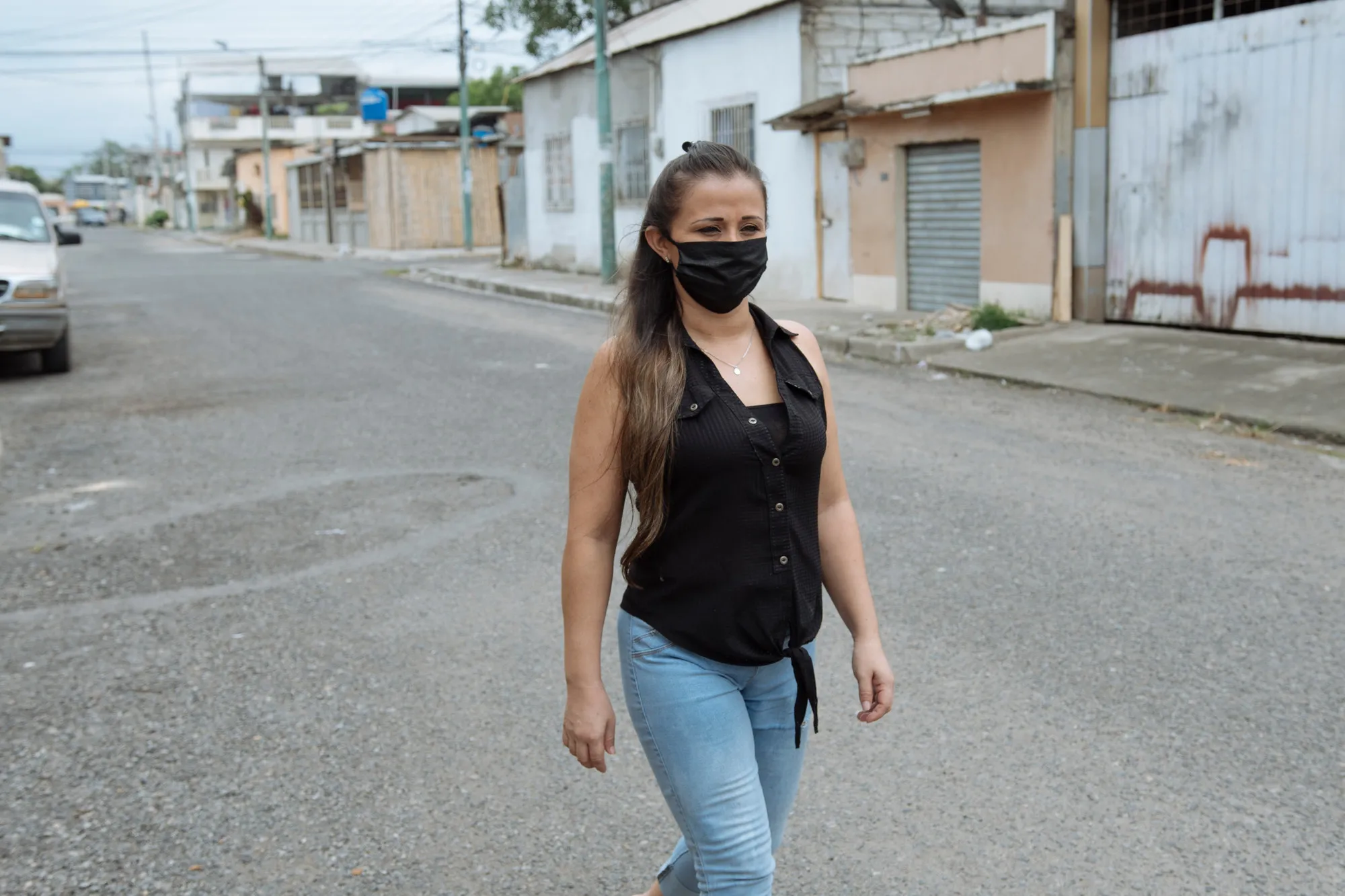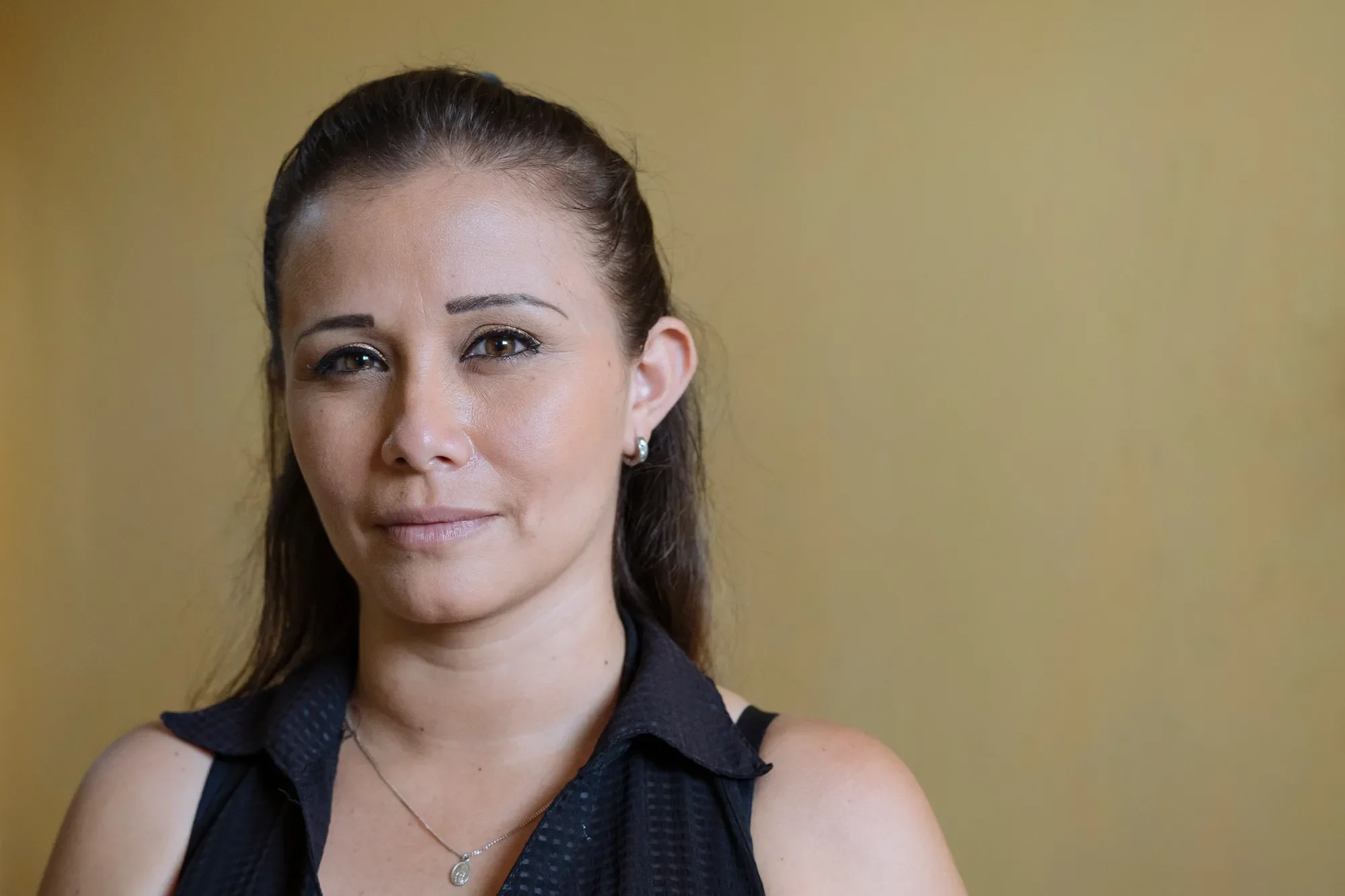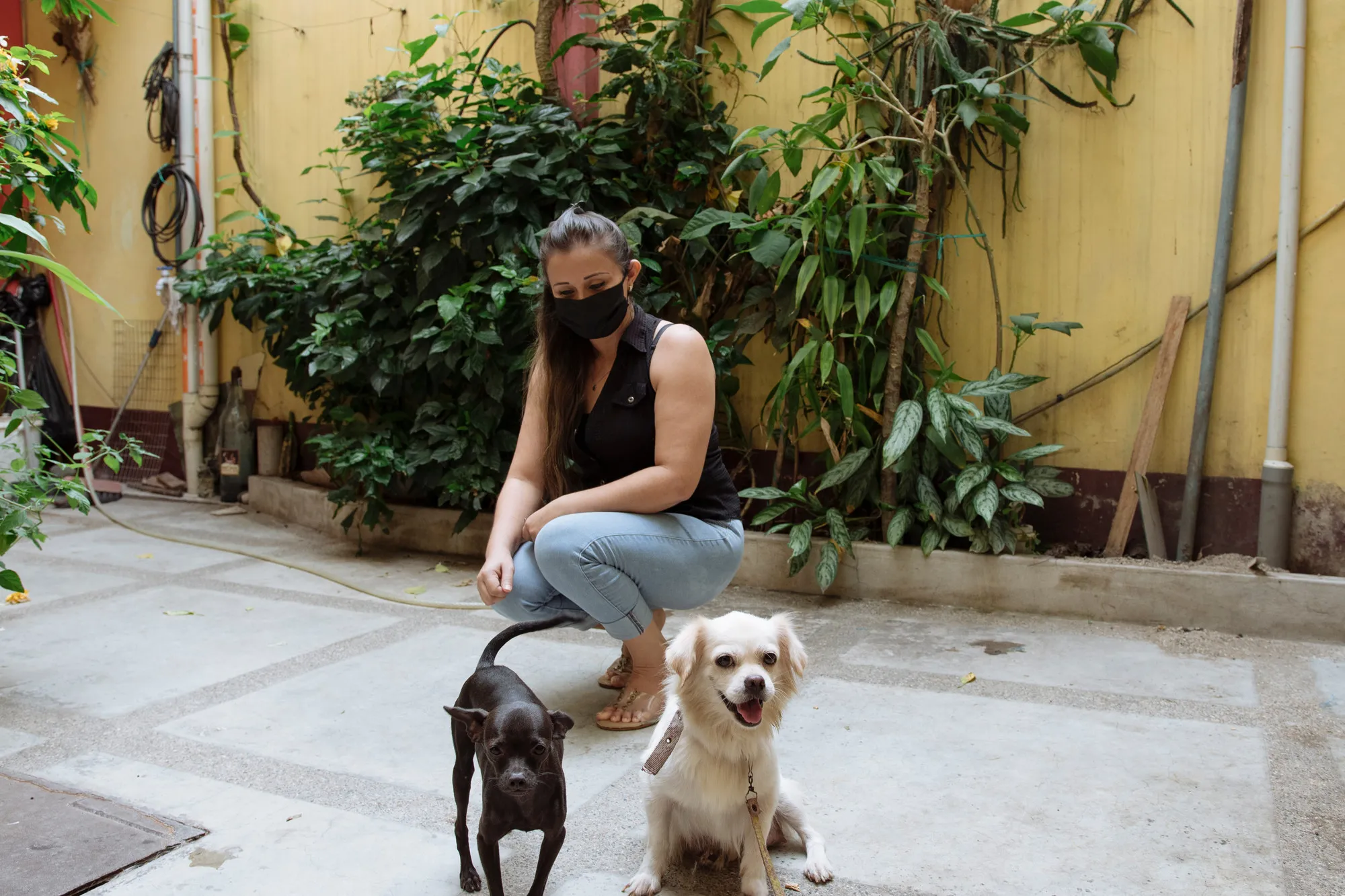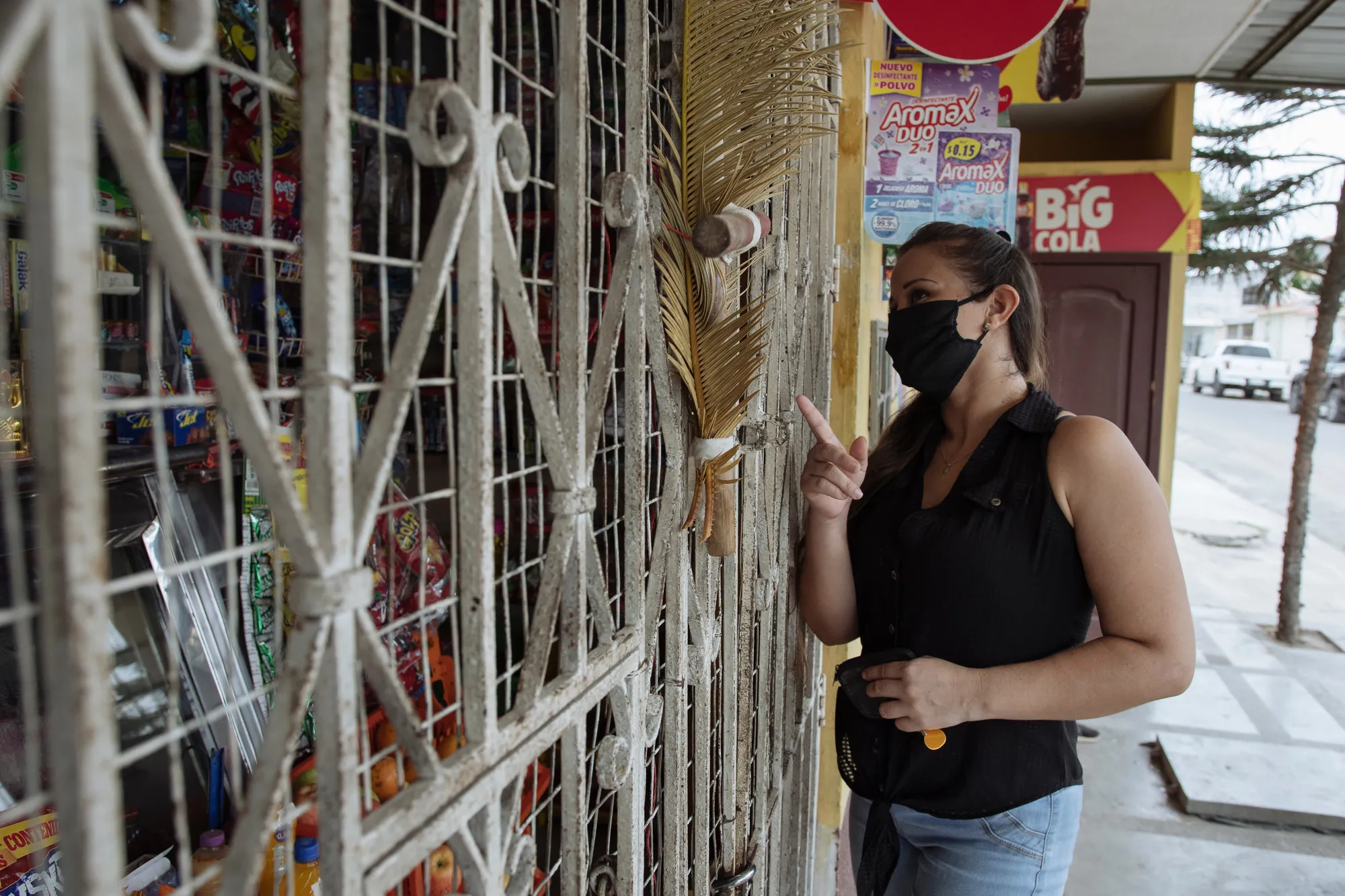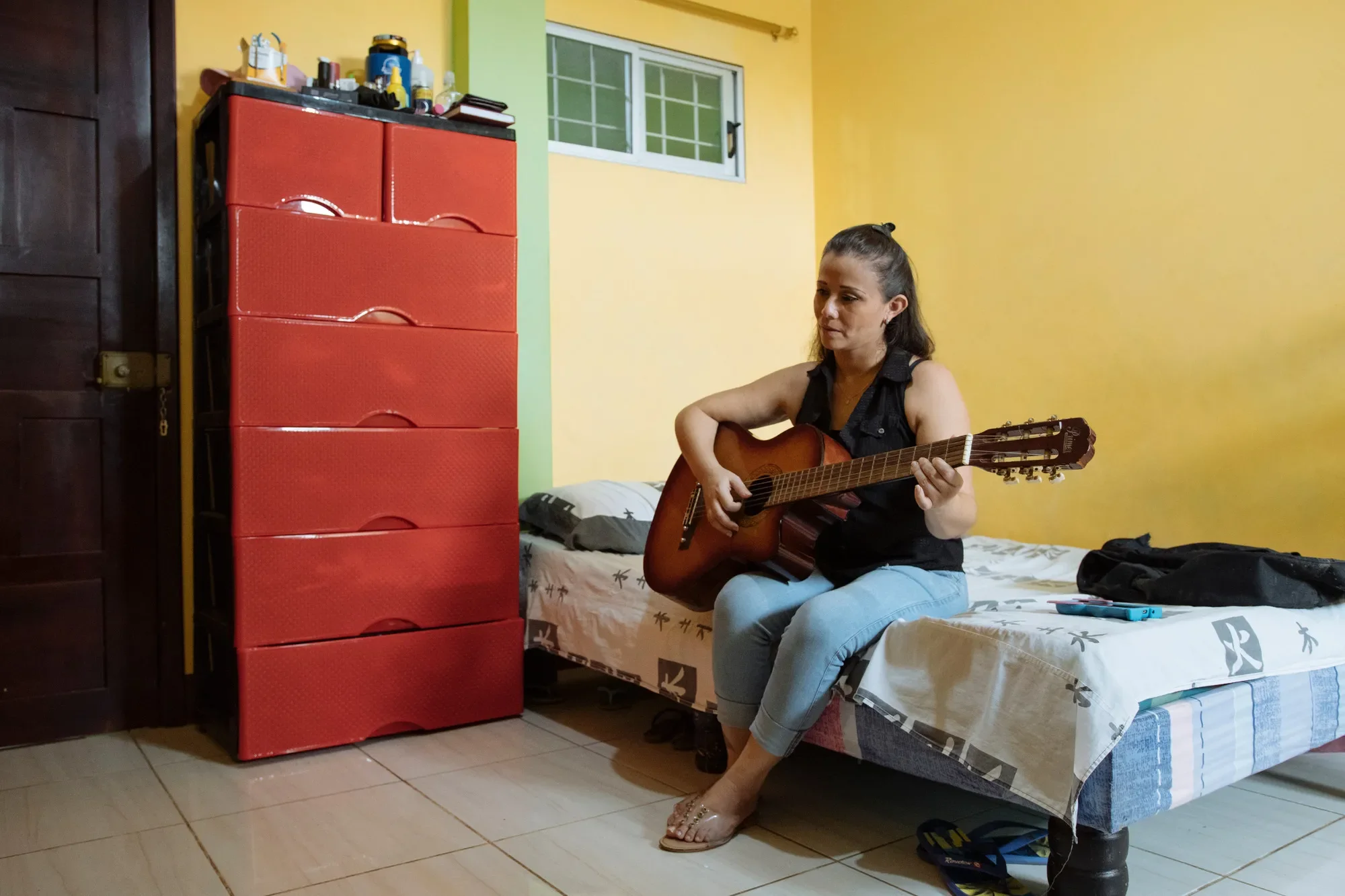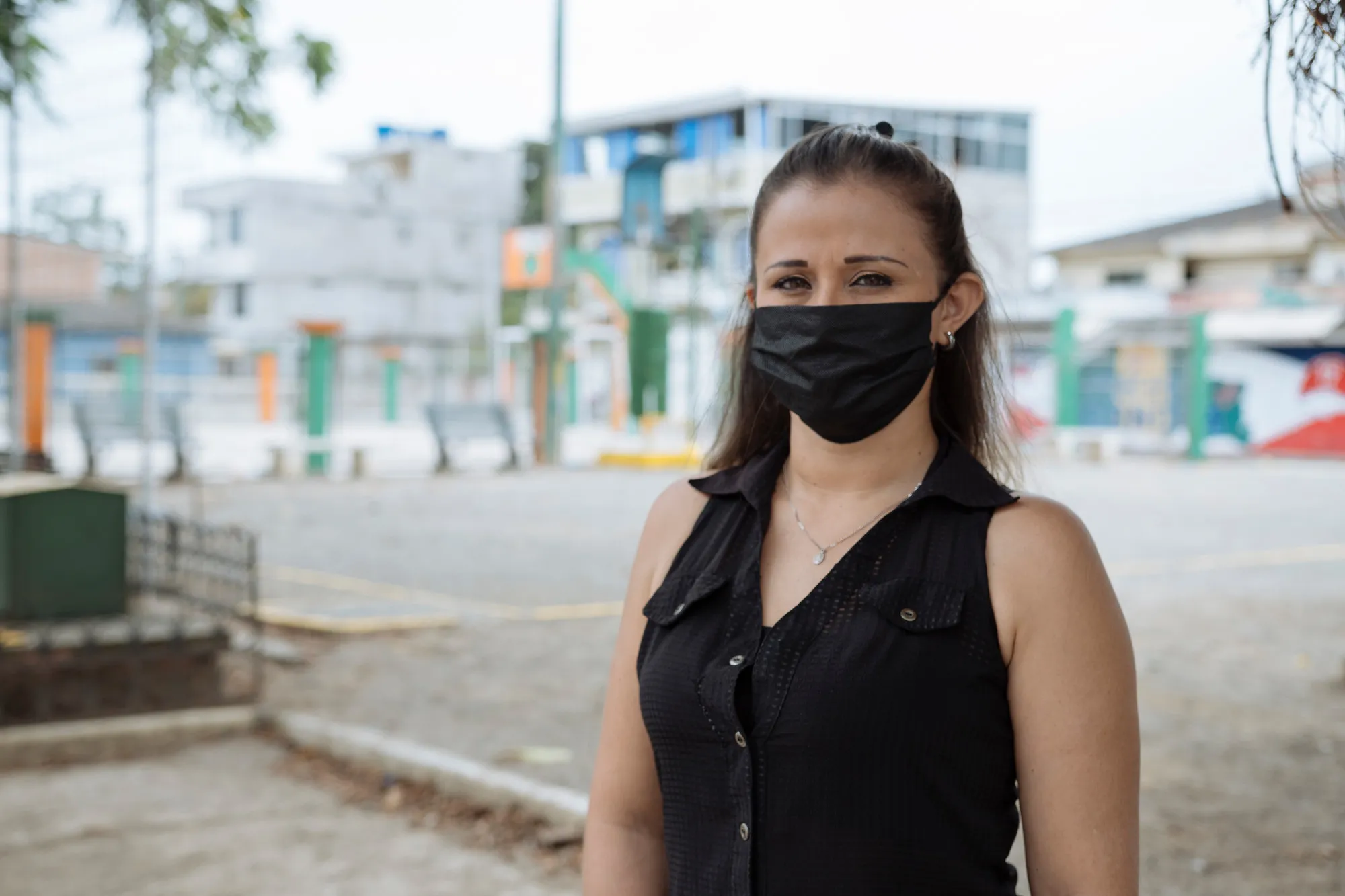Sonia*, 31, has been a sex worker in Ecuador for most of the last 12 years. But when COVID-19 arrived in Ecuador this spring, it disrupted her ability to work and provide for her two children. Her tenuous financial situation is causing her and her children a lot of anxiety. She’s running out of money for food, rent, and other supplies, and worries that her children will get infected with coronavirus.
Sonia says the national government discriminates against her for being a sex worker.
“They are invisible in the public agenda,” says Alexandra Moncada, CARE Ecuador Country Director. “There are no services or policies for sex workers to ensure some kind of basic rent, to ensure food and housing at least during the pandemic. The risk of contagion is still very high, and the situation is very dire for them.”
The pandemic is exacerbating injustices and unfair systems. Curfews and lockdowns are leading to increases in gender-based violence.
“Things that were happening out in the open are now happening in more clandestine ways that create additional risks,” Moncada says.
The country’s health care system is struggling to keep up with the COVID-19 response and ignoring other important services like free STD and HIV treatment and testing.
CARE has implemented virtual sessions for vulnerable populations, including sex workers, to provide information about COVID-19 and GBV survivor support. CARE also provides sex workers with face shields, soap and hygiene kits as well as vouchers for STD and HIV testing and treatment.
CARE’s cash transfer program helps people cover their basic needs, including rent, food or medicine. Some sex workers are using the cash to organize and start businesses selling food and making masks or makeup, Moncada says.
Sonia, too, dreams of starting her own business and says that being able to access credit would help. Despite the difficult situation, Sonia hopes to find a way to get by for her two children.

